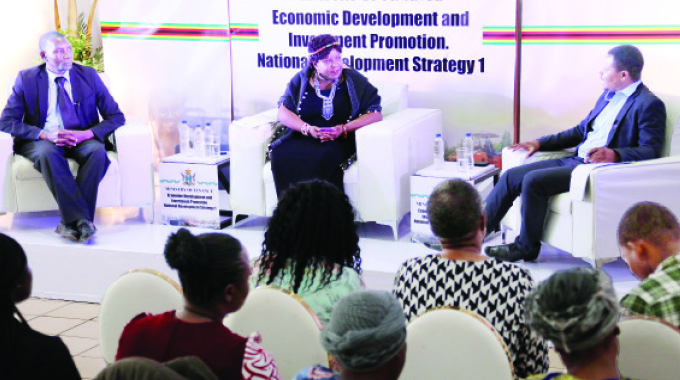New era beckons for universities

Auxilia Katongomara in Havana, Cuba
A NEW era is beckoning for the country’s tertiary education system as university authorities are planning to shift from mass production of graduates to quality that will help to drive industry and national development.
Vice chancellors from the country’s universities say it is time PhD students shift from the “recommendations based theses to a solution and innovative theses” for the development of the country.
Leading the debate in a review meeting of the delegation’s tour to some of the world’s thriving science and technology universities, University of Zimbabwe vice chancellor Professor Levi Nyagura said it’s high time screws were tightened in the country’s higher education system in order to adapt to the country’s industrial needs.
“The issue we have here is about what kind of a PhD are we producing. We are not looking for mass production. We are looking for quality production. I think we need to run away from mass production to quality production so that these people that we produce come up with tangible, visible measurable things and run away from recommendations which are practically useless,” said Prof Nyagura.
He said theses by PhD students must not provide solutions and recommendations which had become monotonous and irrelevant to today’s society.
“I think we need to agree and run away from that kind of British approach and now focus on productivity, things that help steer up the economy,” he said.
Drawing lessons from the recent visit to SRM University in India, the vice chancellors proposed to adapt the policy by most universities to have a professor supervising one PhD student to produce quality graduates.
This, they said, was meant to promote quality rather than quantity as the country was having more PhD graduates who have no impact or contribute nothing to the country’s development or research.
Midlands State University acting vice chancellor, Professor Victor Muzvidziwa said it was better for a university to produce one PhD graduate rather than scores of graduates with no contribution to society.
“From this trip we should be having a different mindset, not even thinking outside the box, there should not be a box at all so that we plan ahead. We are in agreement that there is need to produce PhDs of a high end skills. If we are to agree to that it means, they will be fewer, much sharper and innovative and enterprising. If it means one PhD in a university it’s not a problem as long as that PhD is of a relevant type,” said Prof Muzvidziwa.
He said local universities must shun the culture by some neighbouring countries which were producing PhDs en masse.
Higher and Tertiary Education, Science and Technology Development Minister Professor Jonathan Moyo said the time for mass production of graduates in the country’s universities was over as there was a need to cultivate research-oriented and high skills end people who would lead in the country’s economic transformation.
He said the mass production of PhD graduates poses serious problems for the country.
“From a policy point of view, we are shifting from just training for knowledge and moving to producing skills that research, innovate and enterprise. Clearly you can’t be mass based to achieve this. We are encouraging a shift right from our under graduate programmes to say can we shift from just producing paper people, certificated people to people who are skilled,” said Prof Moyo.
He also emphasised on having one professor, one student supervision for better results.
“One hopes that a professor can only supervise a student in an area they are also researching and they are informing each other. We can’t have a professor researching 10 areas and supervising 10 students at PhD level, I don’t think it makes sense. Clearly it would be good policy to say let’s have fewer who produce quality, not the numbers.”
The aim of the three-week tour led by Prof Moyo was to learn from some of the top universities on how high institutions of higher learning are contributing to industrialisation in their countries.
The Ministry of Higher and Tertiary Education, Science and Technology Development has rolled out a reform process in terms of institutional governance, legislative frameworks, programmes, projects and research plans for industrialisation and modernisation through STEM.
The reforms are aimed at strengthening the capacity of universities to produce quality research, teaching and learning environment and it is hoped that this will stimulate economic growth for the nation and facilitate hands-on research, among others.
@AuxiliaK









Comments